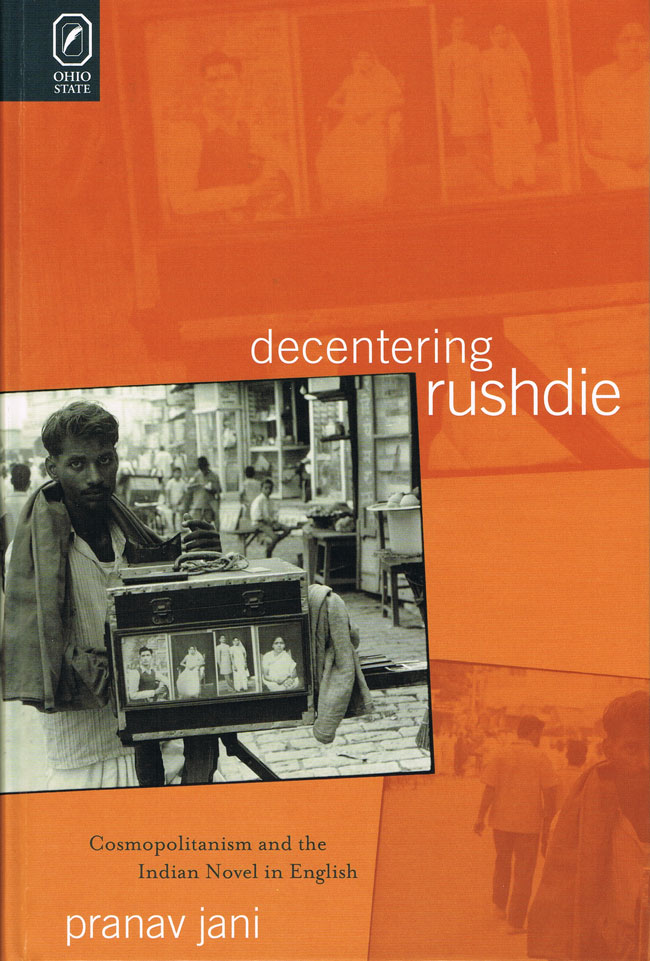Decentering RushdieCosmopolitanism and the Indian Novel in EnglishPranav Jani |
 7/14/2010 Literary Criticism/Asian/Indic 304 pp. 6x9  $49.95 cloth 978-0-8142-1133-5 Add cloth to shopping cart $14.95 CD 978-0-8142-9232-7 Add CD to shopping cart Shopping Cart Instructions Review/Change Shopping Cart & Check-out | |||
| Table of Contents |
“Pranav Jani’s scholarship is sound and invitingly written—calm, patient, and exacting. This is a valuable contribution to postcolonial scholarship, and I would definitely assign it to my students in graduate seminars. It is very welcome to see this important case made—one that a few scholars have broached in other ways—and Jani does it beautifully.” —Timothy Brennan, professor of Cultural Studies and Comparative Literature, University of Minnesota “Pranav Jani’s Decentering Rushdie is a lucid, insightful treatment of seven Anglophone Indian novels written by five different authors, and it will go a long way toward raising awareness of these often overlooked writers. Jani also highlights the achievements of Indian women writers. I strongly recommend it to anyone interested in Anglophone Indian novels.” —Patrick Colm Hogan, professor of English, University of Connecticut Interrogating current theories of cosmopolitanism, nationalism, and aesthetics in Postcolonial Studies, Decentering Rushdie offers a new perspective on the Indian novel in English. Since Salman Rushdie’s Midnight’s Children won the Booker Prize in 1981, its postmodern style and postnational politics have dominated discussions of postcolonial literature. As a result, the rich variety of narrative forms and perspectives on the nation that constitute the field have been obscured, if not erased altogether. Reading a range of novels published between the 1950s and 1990s, including works by Nayantara Sahgal, Kamala Markandaya, Anita Desai, and Arundhati Roy, Decentering Rushdie suggests an alternative understanding of the genre in postcolonial India. Pranav Jani documents the broad shift from nation-oriented to postnationalist perspectives following the watershed crisis of the Emergency of the 1970s. Recovering the “namak-halaal cosmopolitanism” of early novels—a cosmopolitanism that is “true to its salt”—Decentering Rushdie also explains the rise and critical celebration of postnational cosmopolitanism. Decentering Rushdie thus resituates contemporary literature within a nuanced history of Indian debates about cosmopolitanism and the national question. In the process, Jani articulates definitions of cosmopolitanism and nationalism that speak to the complex negotiation of language, culture, and representation in postcolonial South Asia.
| |||


 Pranav Jani
Pranav Jani